1. Till We Have Faces by C.S. Lewis
2. The Bassoon King by Rainn Wilson
3. To Kill a Mockingbird by Harper Lee
4. How Google Works by Eric Schmidt and Jonathan Rosenberg
5. One More Thing: Stories and Other Stories by B.J. Novak
6. Einstein: His Life and Universe by Walter Isaacson
7. You Are What You Love by James K.A. Smith
8. Eiffel's Tower by Jill Jonnes
9. Planet Narnia by Michael Ward
10. Like Father Like Son by Pete Alwinson
I found a recommended reading list on my pastor’s website. It was the kind of list that only people like him would read, and it took me about a decade to realize I wasn’t a person like him. But in 2016 I thought I should be.
I scrolled through the options and selected the book that I thought might impress him if I ever had the opportunity to casually mention it. This guy was allergic to small talk, and I had struck out with each prior attempt. I needed a conversation starter, or conversation starters, so I picked out The Consequences of Ideas: Understanding the Concepts that Shaped Our World by R.C. Sproul. The book was organized as an exhaustive overview of the most influential philosophical thoughts that set the groundwork for the way our culture processes and interprets the information they collect.
It was an ambitious work and an ambitious read. I would do my best to summarize Immanuel Kant and Karl Marx in my journal. But despite my best efforts, the only thing I was left with was a slightly better understanding of Communism and feeling really stupid. I mentioned the reading list and the book to a friend and his reply was, "oh yeah, I loved that book."
I didn't believe him.
There's a reason this book didn't make the list— I didn’t like it— but it easily takes up more pages of notes than any other subject in my two volumes of 2016 journals. The consequence of the book wasn't the influence of postmodern thought on how I view God— but rather that I don't want to pretend to enjoy (or to even understand) topics that don't spark my curiosity or imagination. Particularly if the only reason I'm doing it is to score pastor brownie points. He probably doesn't even like brownies.
But those weren't the only ideas I found. Up to this point, the re-reading of my 2013-2015 journals has felt like looking through childhood photo albums. I recognize the snapshots as myself, and even remember living through some of those moments, but that person is no longer the person I am today. I’ve grown up. Matured. Learned something. Changed.
But fittingly, I saw evidence of new ideas that have since blossomed.
There was:
a bucket list that I can now cross four items off of— the most recent occurring a month ago
a 5-year Plan charting my anticipated career path that contained some tangible goals I’ve successfully achieved
“Get to write," listed as one of my “Ideal Job Traits"
a rough sketch of my basement finishing project—the space which has since become my favorite place not only in my house, but in my life
lists of wedding presents, most of which are still in working order
I created a mind map for "Chris's Worldview." I took inventory of the seminal moments of my life and how they shaped the way I act, think, and feel as a 26-year-old. The timing of the before-and-after entries suggest that I filled this out while crammed in a center seat on the way home from my Greece Honeymoon with my new bride.
I can't say that the ideas of Søren Kierkegaard or Jean-Paul Sartre made a big impact on me— or if they did what the impact was— but there was still plenty of evidence of thoughts with direct consequence to the man I am today. The man that has since overshot the 2016 version of his 5-year Plan.
Also I can’t speak Latin, so cut me some slack if I googled the wrong translation for my subtitle.1
●●●
1. Till We Have Faces by C.S. Lewis
I've read the majority of Lewis's works. Even a lot of the boring stuff. I don't get a lot out of those, other than a greater appreciation that such a dense academic could so easily pivot and write some of the clearest explanations of horrifically difficult topics that any writer has tried to explain for the common man. As a common man, I am so thankful to him for that.
A lot of my favorite work of Lewis's was written last. He had an odd love story that was sprung on him unexpectedly when he met the American admirer Joy Davidman through a fan letter. His life would be sent down a path that altered everything for him. It wasn't the path he had planned, but you can clearly see from the beauty in his late writing, it was the path he was destined for.
He dedicated Till We Have Faces to Davidman. In many ways it's an unexpected love story in its own right. It's a retelling of the myth of Cupid, but there are no fat babies—which was the only version of Cupid I was aware of. So for me, this is the version that counts.
I can't really say why I love it, but I do. Not knowing why you love something is also kind of the point of the story. I’m not sure how Lewis did that, but according to the biographies I’ve read, Joy helped a lot. Joy pulled out a version of Lewis that was buried and he needed help finding. The two of them would play Scrabble by combining multiple bags of tiles and any word in any language was fair game. They knew a lot of languages.
I read this book in a couple of days, mostly while laying on my fiancée’s living room couch. Later that year we got married. She's a lot better at Scrabble than me.
"I ended my first book with the words 'no answer.' I know now, Lord, why you utter no answer. You are yourself the answer. Before your face questions die away. What other answer would suffice? Only words, words; to be led out to battle against other words. Long did I hate you, long did I fear you, I might—"2
●●●
2. The Bassoon King by Rainn Wilson
Celebrity memoirs are a crap shoot. Are they going to be ego-inflating manifestos spouting off all their expert opinions on things they're not experts in? Or are they going to be extended joke books attempting to demonstrate to a studio executive how funny they would be in their own starring sitcom role?
Rainn Wilson nails the correct balance.
Wilson shows that it's possible to be thoughtful, funny, and famous. His bohemian origin story has enough weirdness in it to keep things interesting, and he speaks as someone of substance that doesn’t take himself too seriously.
The Office is my favorite show and I have a Dwight Schrute bobblehead, action figure, stress ball, Lego mini-figure, and Pez dispenser in my office. I'm really glad he didn't ruin that for me.
Also, Rainn gives a fascinating explanation of the Baha'i faith as an appendix. You should read that too.
●●●
3. To Kill a Mockingbird by Harper Lee
I know. I was supposed to have read this sooner, and part of me thinks I did, but holy shit is this a good book when you're an adult.
About a year ago, Paige and I went on our first real date without kids to see Aaron Sorkin's stage adaptation— starring the creepy Grandpa from Ozark3 as Atticus Finch. It was also remarkable. I liked it so much that I watched Aaron Sorkin's Masterclass on the most expensive app I've ever purchased. I also watched Malcolm Gladwell’s Masterclass, where as a non-sequitur he mentions that he absolutely hates To Kill a Mockingbird and people that like it are just too dumb to understand how racist it really is. Or something like that. Well, I think you're dumb Mr. Gladwell.
I also read the money grab Go Set a Watchmen, published posthumously after someone decided they could compile the original drafts of To Kill a Mockingbird and market it as a different book. It wasn't a different book, just a worse version of Mockingbird with a racist Atticus Finch.
Maybe Malcolm Gladwell had a point.
"You are too young to understand," she said, "but sometimes the Bible in the hand of one man is worse than a whiskey in the hand of, oh, your father…" "What I meant was, if Atticus Finch drank until he was drunk he wouldn't be as hard as some men are at their best. There are just some kind of men who— who're so busy worrying about the next world they've never learned to live in this one, and you can look down the street and see the results."4
●●●
4. How Google Works by Eric Schmidt and Jonathan Rosenberg
In 2016, I wasn't sure what I wanted to be when I grew up. I was a couple years into a sales job I didn't like, but was meeting interesting people that seemed to have a lot of big ideas. I didn’t have any big ideas. The biography of Steve Jobs was still ringing in my ears, so I went through a several year phase of reading the start-up stories of sexy businesses. I liked these books, but I can't say I learned a lot— other than I probably wasn't going to create a search engine.
"Smart creatives… place culture at the top of the list (when looking for a job). To be effective, they need to care about the place they work. This is why, when starting a new company or initiative, culture is the most important thing to consider."5
"People's B.S. detectors are finely tuned when it comes to corporate speak; they can tell when you don't mean it."6
●●●
5. One More Thing: Stories and Other Stories by B.J. Novak
Remember how I like The Office?
This was not a celebrity memoir. This was something else entirely. B.J. was hired on The Office to be a writer, but creator Greg Daniels thought it would serve the show well to make some of the writers also act in order to help them embody the tone of the show. After a while you forget that Ryan, Kelly, and Toby in the annex were really paid to write jokes.
Novak's book of short stories shows how good he is at that. This collection of fiction ranges from the way the hare's life was ruined after the legendary upset at the feet of the tortoise, to the Comedy Central Roast of Nelson Mandela. Brilliance.
Yet simple. I felt inspired after reading it. I had the constant thought of “I could come up with something like this” after each essay. There was a he-makes-it-look-easy quality to the writing, but more so it was just so much fun to read that I thought it would be just as much fun to write.
I felt like I could write something funny.
I felt like I wanted to write something funny.
In a fun aside, both B.J. and Rainn acknowledged Mindy Kaling in their work:
"Mindy Kaling gets her own line in the acknowledgments, as previously negotiated by her representatives. Thanks, Mindy. I love you and you're the best."- Novak7
"I also want to thank Mindy Kaling for being so yucky."- Wilson8
"B.J. Novak was an incredibly young stand-up comic out of Harvard when Greg Daniels discovered him. I've never met anyone with a sharper, darker wit. He's got lasers in his brain… Mindy Kaling is a horrible person. She doesn't deserve a paragraph in this iconic pantheon of writers. (B.J. writes most of her stuff anyway.) She's an insufferable flibbertigibbet who is obsessed with fashion, shopping, Beyonce, and cutting off the penises of the men she's slept with and putting them under her mattress. She also owes me two hundred fifty bucks, a soy latte, and a guest-star role on her new dumb show. She makes me sick, I need to stop writing about her now."- Wilson9
Mindy's take:
"B.J. Novak was a terrific friend and editor, giving me sound notes like, ‘Hey, Mindy, I think you sound kind of racist here. I would be really careful about not sounding racist in your book.’”-Kaling10
"I, on the other hand, hear someone briefly mentioning Rainn and I'll immediately launch into 'Oh my god, Rainn's so horrible.’”-Kaling11
●●●
6. Einstein: His Life and Universe by Walter Isaacson
Those of you following along, you knew Walt would get a mention.
I had to take a lot of math classes in college. I never really liked math. I could do it, but it was always work. The fact that it was so cumbersome is probably part of the reason I went to engineering school. I figured work should feel like work. Certainly that's how everyone feels about math, right? Someone’s got to do the math.
I dropped out of my University's Honors program after going to a theoretical math lecture that I needed for Honors credit. The lecturer was trying to explain how there is no such thing as a number, only empty sets of numbers, and numbers are just a certain number of empty sets that aren't really numbers. He drew something on the board that was supposed to clear this up, complete with parentheses and squiggles. I had no idea what the fuck he was saying.
I labored on. I finished engineering school. Working at it. But I had a chance encounter with a Math Major that changed how I viewed math forever.
Math Major: (fumbling with his words after misspeaking) “Ugh, sorry. English isn't my first language.”
Other girl in the room: “Haha, what is then?”
Math Major: “Math.”
This dude loved math. It was the language he spoke.
Whoa. There are people like that?
Einstein was like that. He LOVED math. LOVED physics. LOVED the things that I found burdensome when I was assigned them as homework.
Not only did I realize that someone could love math, I realized I didn't. And I eventually realized that this was ok.
"For some people, miracles serve as evidence of God's existence. For Einstein it was the absence of miracles that reflected divine providence. The fact that the cosmos is comprehensible, that it follows laws, is worthy of awe. This is the defining quality of a 'God who reveals himself in the harmony of all that exists.’”12
“Also by his bed were twelve pages of tightly written equations, littered with cross-outs and corrections. To the very end, he struggled to find his elusive unified field theory. And the final thing he wrote, before he went to sleep for the last time, was one more line of symbols and numbers that he hoped might get him, and the rest of us, just a little step closer to the spirit manifest in the laws of the universe."13
●●●
7. You Are What You Love: The Spiritual Power of Habit by James K.A. Smith
Key words: liturgy, telos
My pastor booked James K.A. Smith for an Omaha appearance and was so excited he announced it a full year ahead of time. I had never heard of the guy, but I picked up his most recent book— more specifically my wife was given a copy at an event and I claimed it as my own— and did my homework for the guest speaker 11 months in advance.
It was a great read. Smith's thesis is basically: our habits shape what we love, and we cannot claim to have something like God as our ultimate love, our ultimate aim, our (fancy word) telos, if what we do on a daily basis doesn't reinforce that aim.
It seems like a fairly straightforward concept, but the way Smith breaks it down is pretty profound. I found myself asking questions like, "is it really appropriate for someone in the military to wear their dress uniform at their wedding? What is he communicating with that fashion choice?" When you start looking at what your daily habits consist of, you may get a different answer to the question of 'what do you love' than you would give at an awkward Bible study.
I eventually joined one of those awkward studies to discuss the book. I had read the book months ago, so I was completely lost in most of the conversation because I didn't want to re-read it so close to having just finished it.
When I finally met Jamie Smith— as they call him when he's not a fancy author— I listened to him twice. He had a lecture available to the public and one for our church the next morning. I got a lot out of it.
When I went up to him afterward to have my book signed, I asked him the question that had been gnawing me the entire 48 hours of his speaking engagements. Something that the master of how liturgies and activities shape who we are and what we admire would certainly have a profound answer for. Something he said in passing, but I latched onto and couldn’t stop wrestling with.
"How does a Canadian like NASCAR?
"I’m not sure."
I was a bit disappointed.
He signed my wife's book:
"Chris-
Blessings & Hope,
James K.A. Smith"
It's my book now.
"Antoine de Saint-Exupéry, the author of The Little Prince, succinctly encapsulates the motive power of such allure: ‘If you want to build a ship,’ he counsels, ‘don't drum up people to collect wood and don't assign them tasks and work, but rather teach them to long for the endless immensity of the sea.’” 14
●●●
8. Eiffel's Tower by Jill Jonnes
When we got married, one of the most exciting moments was combining our book collections. Paige and I have different tastes, but she had a really good history professor in college and went through a period of buying a bunch of the exact type of non-fiction that I devour.
When the Omaha Borders bookstore was having their out of business liquidation, she impulsively grabbed this little treat off the discount rack.
If I had a time machine, I think it would be pretty incredible to visit some of the famous World's Fairs. But even with a time machine, the effect would be largely lost since I routinely take my kids to the $1 Ferris Wheel inside Scheel's. Even if I was transported to Chicago in 1893, it would be impossible to recreate the feeling of marvel that would come with the unveiling of that invention. Awe comes with experiencing something that you can’t comprehend.
This book is a pretty good substitute for that time machine. Jonnes spends a lot of time explaining just how crazy Eiffel was. Since we live in an age when the Eiffel Tower has become ubiquitous, it's profound to hear just how controversial and difficult the structure truly was to create. The City of Paris was even going to tear it down until Eiffel was able to convince them that it could double as an antenna.
It took a while for everyone to get it. But Eiffel always got it. Vision is funny like that. It takes a while for people to get it.
●●●
9. Planet Narnia by Michael Ward
My church small group gave me this book as a gift after I got married.
"Chris, Hope you enjoy the book... look forward to your review of the pages that follow.
Love,
The Seadores"
Alright Nate, here it is eight years later.
This super smart guy Michael Ward thought he figured out a mysterious connection between all of The Chronicles of Narnia books and the pre-Copernican model of the universe. Each book was loosely— or not so loosely— based off of a planet and the allegorical attributes assigned to it.
The theory was a little out there: claiming Lewis tied all the Narnia books together with some secret message he never told anyone.
But the crazier thing was I believed him.
I'm totally on board with the conspiracy.
Tin foil hat: ON.
However, I had no idea what Ward was talking about when I first read this book. I had to wait for the dumb guy version called The Narnia Code to come out several years later. It turns out I'm not as smart as I'd like to be. Even the fact that I put this book on my Top Reads list was mostly meant to signal, "Hey I'm smart and read smart things!"
It’s also interesting to compare Lewis with Einstein on the topic of planets. Both are geniuses, both found God in the mystery of the universe, but each went at it from a completely different end of the spectrum. Yet thumbing through each book, the phrase “music of the spheres" comes up repeatedly in both Isaacson's and Ward's work. Even someone as dense as me can see that, even though I can't understand it.
Neither did they.
●●●
10. Like Father Like Son: How Knowing God As Father Changes Men by Pete Alwinson
I was given this book at a church men's retreat. This wasn't a put-a-boot-up-your-ass-and-start-being-a-man type of church men's retreat, but it was one where they tried to make you cry by bringing up how much we all feel like we've failed as men because of our issues with our dads. I don't know, men's retreats are kind of weird to me, but it was mostly good.
This was probably the first time I started thinking through how my own relationship with my dad shaped me for better or worse. I'm glad I'm writing this review now. In 2016, I thought about a lot of the bad things. But now that I’m a father and have kids of my own, I better appreciate how impossible a job fatherhood is. It doesn't mean we're not screwing up our kids. It doesn't mean they shouldn’t still sort through those issues as adults. And it doesn't mean some of their problems aren't your fault. But it does mean we're all just trying to figure it out together.
As I'm typing, I'm playing a greatest hits compilation of The Doors. My brother introduced me to the band on a family vacation, and my parents angrily turned off the CD during "The End" when Jim Morrison went on a rambling rant that contained the lyrics:
"Father?
Yes, son?
I want to kill you."
Jim did a LOT of drugs, so I don't think the poetic depth of these lyrics should be taken too seriously. My parents were completely justified in turning the song off. I would have turned the song off if I heard my own kids playing it. And I've never once felt that way toward my own dad.
But I know there are people that do feel that way. That do want to say that out loud. That are too scared to say that out loud. That have buried that in a deep place that only drugs and The Doors could bring it out.
Maybe we should say it out loud.
https://setonshrine.org/the-glory-of-god-is-man-fully-alive-saint-irenaeus-and-mother-seton/
Till We Have Faces by C.S. Lewis, pg. 308
https://ozark-netflix.fandom.com/wiki/Nathan_Davis#:~:text=Nathan%20Davis%20is%20the%20overarching,of%20Charlotte%20and%20Jonah%20Byrde.
To Kill a Mockingbird by Harper Lee, pg. 45
How Google Works by Eric Schmidt and Jonathan Rosenberg, pg.29
Ibid, pg. 31
One More Thing by B.J. Novak, pg. 276
The Bassoon King by Rain Wilson, pg. vii
Ibid, pg.250-251
Is Everyone Hanging Out Without Me? by Mindy Kaling,pg.221
Ibid, pg. 117
Einstein: His Life and Universe by Walter Isaacson, pg.551
Ibid, pg.543
You Are What You Love by James K.A. Smith, pg. 11



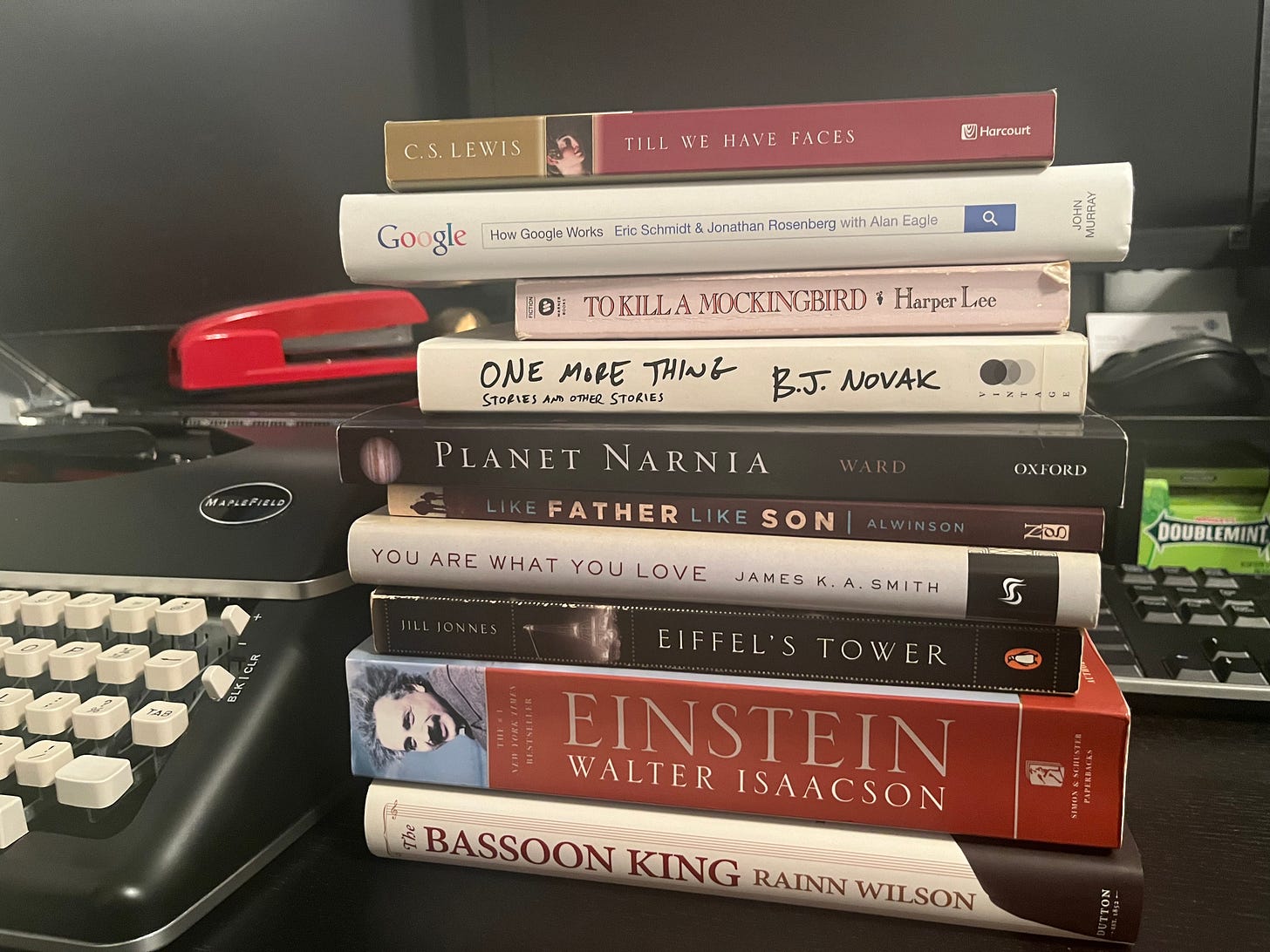
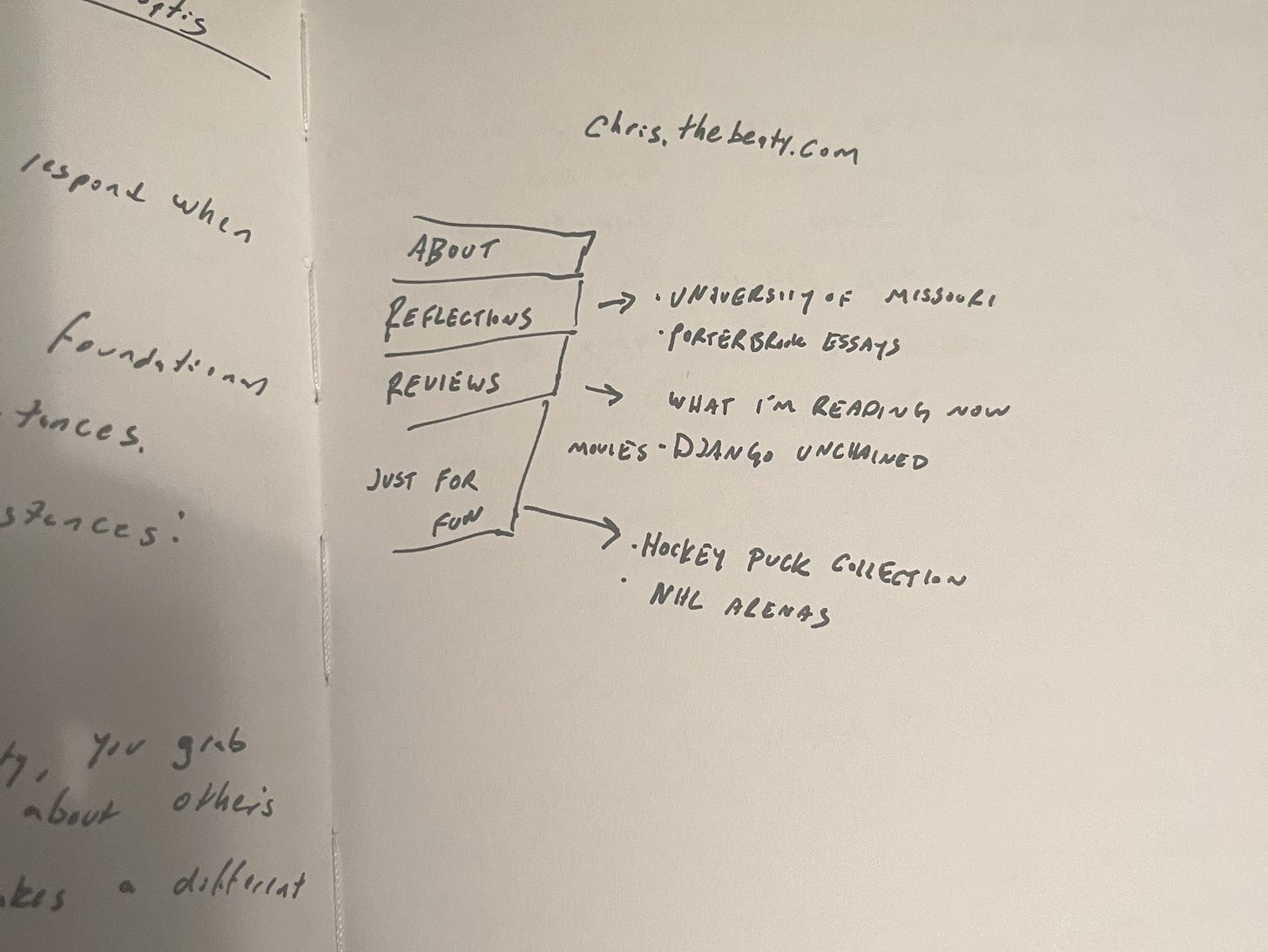
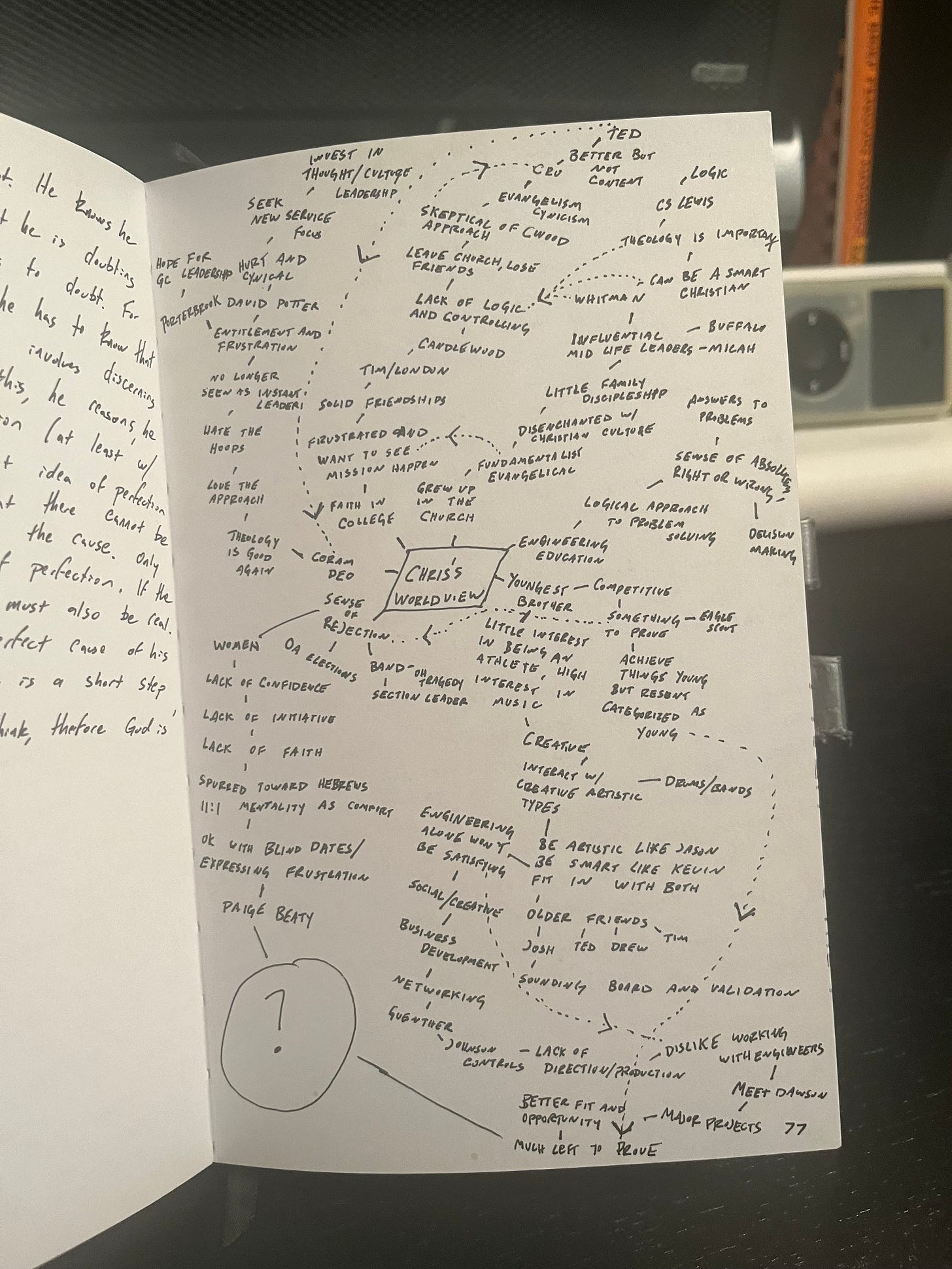
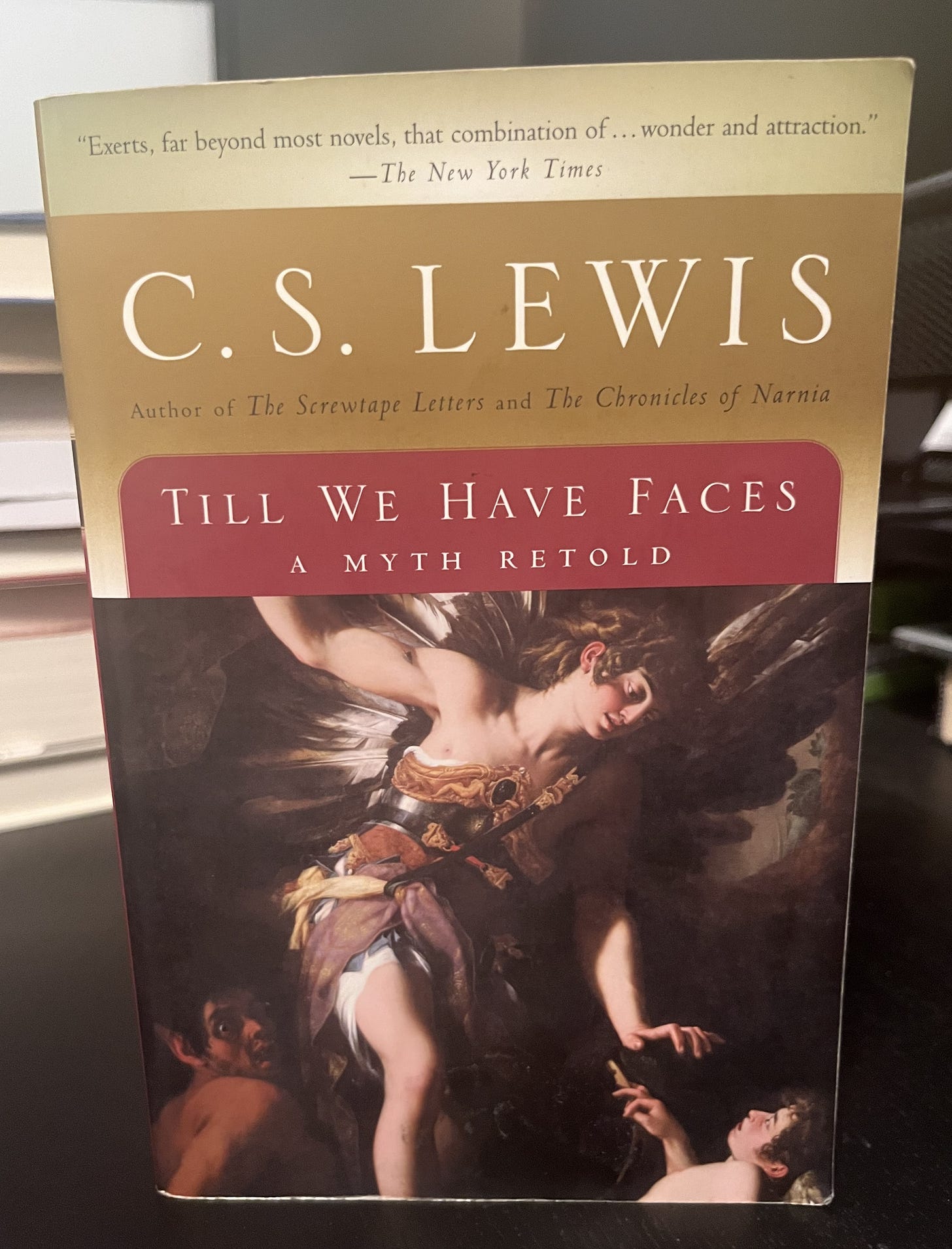
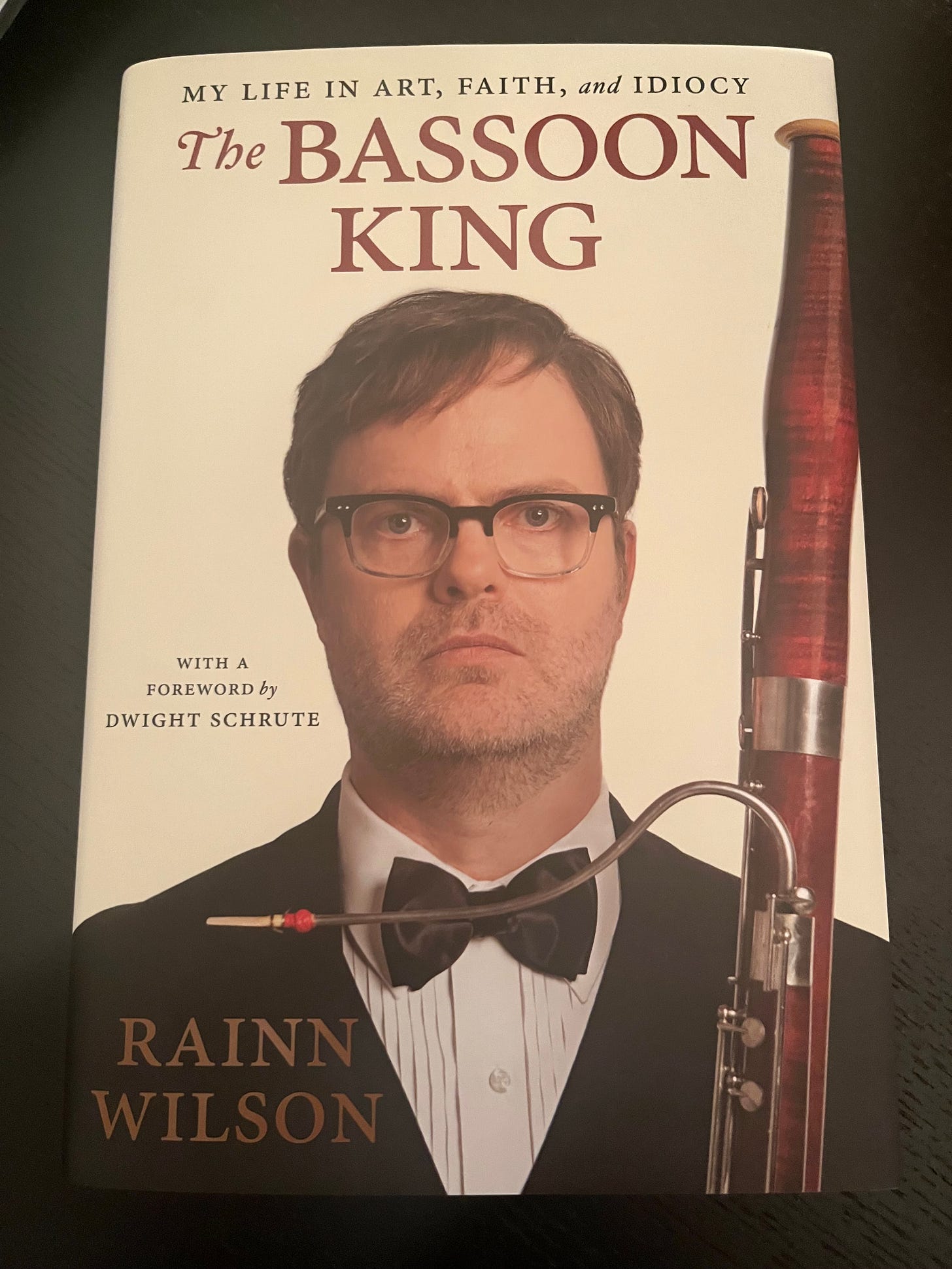
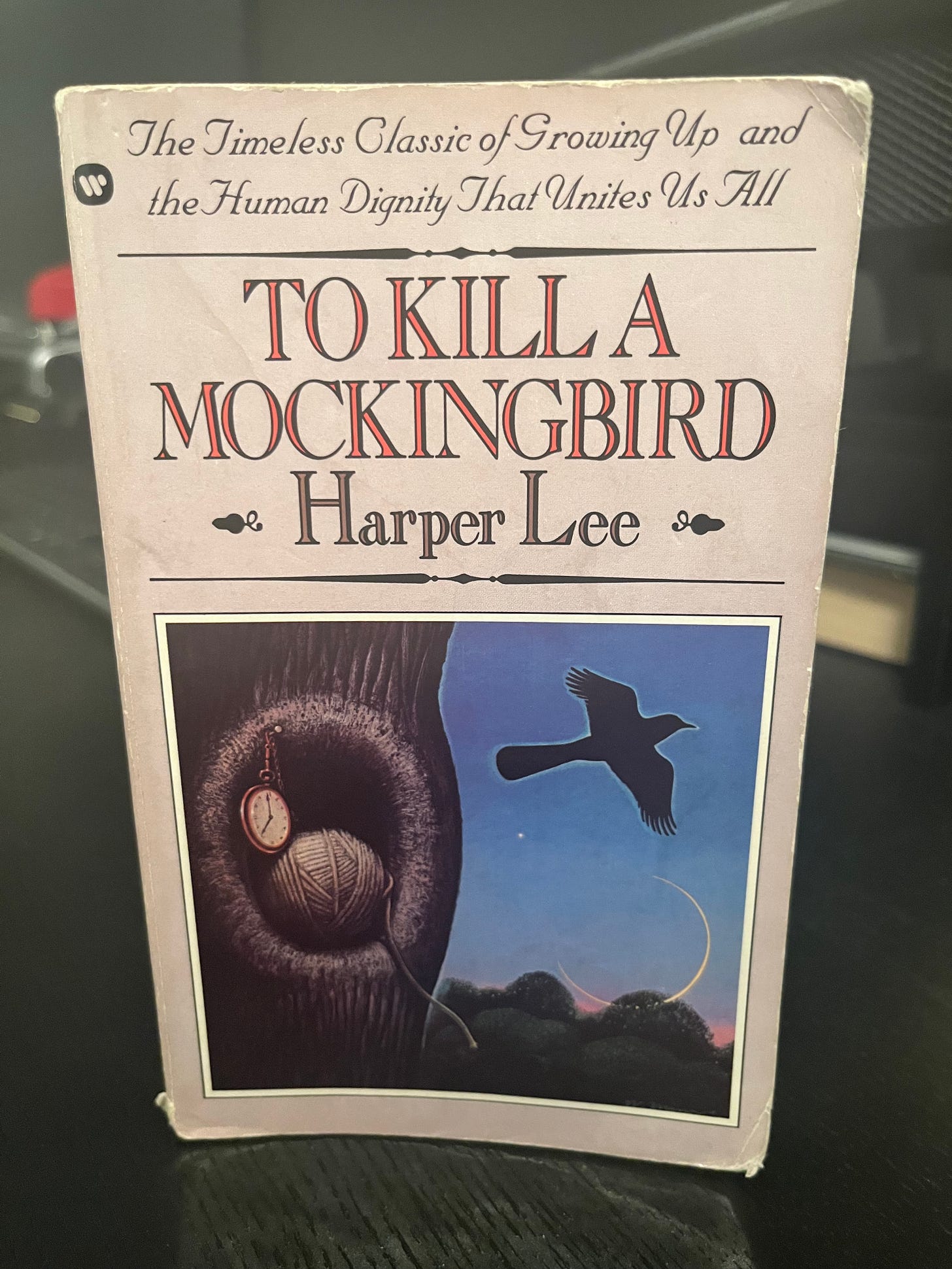
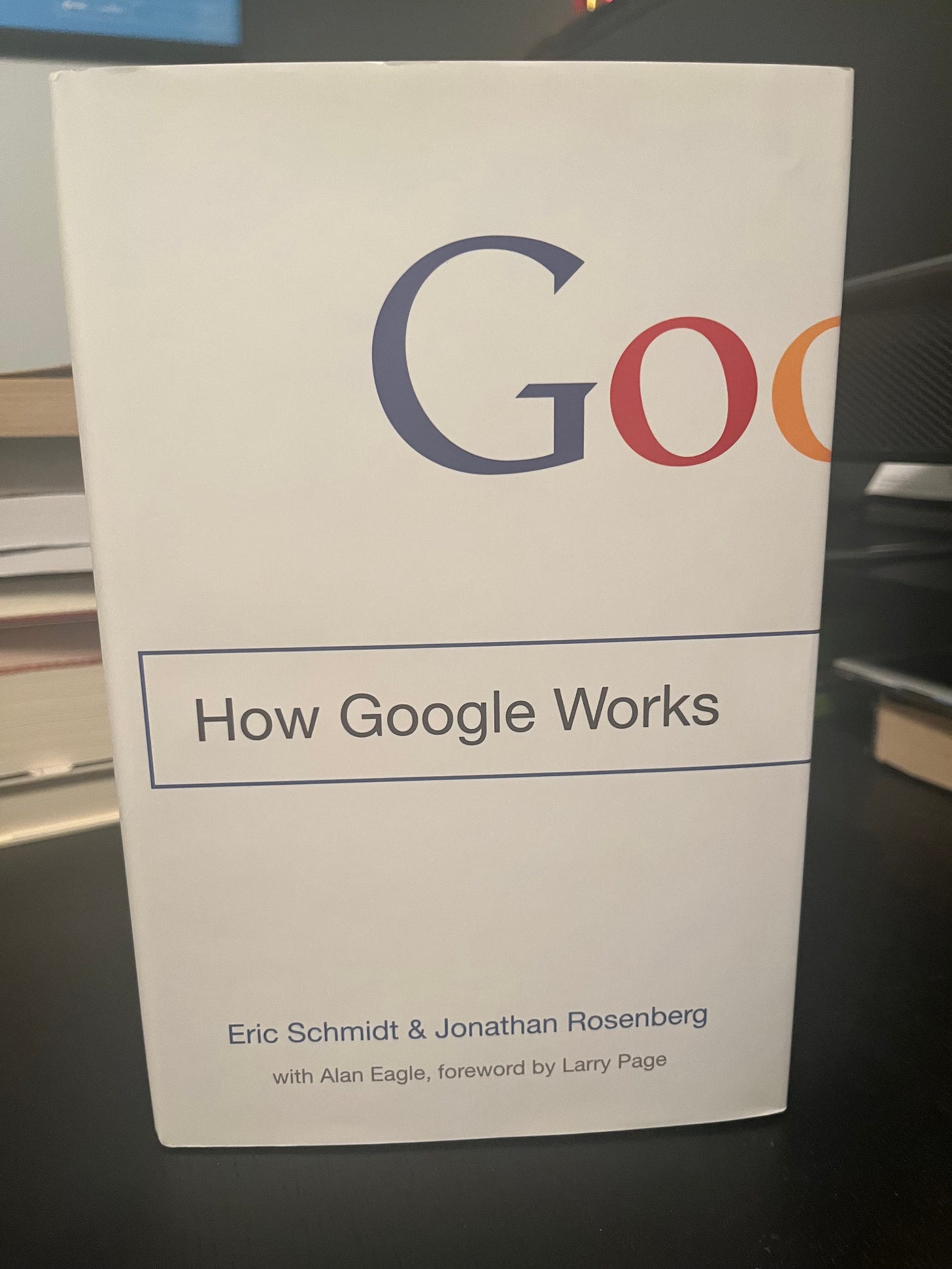
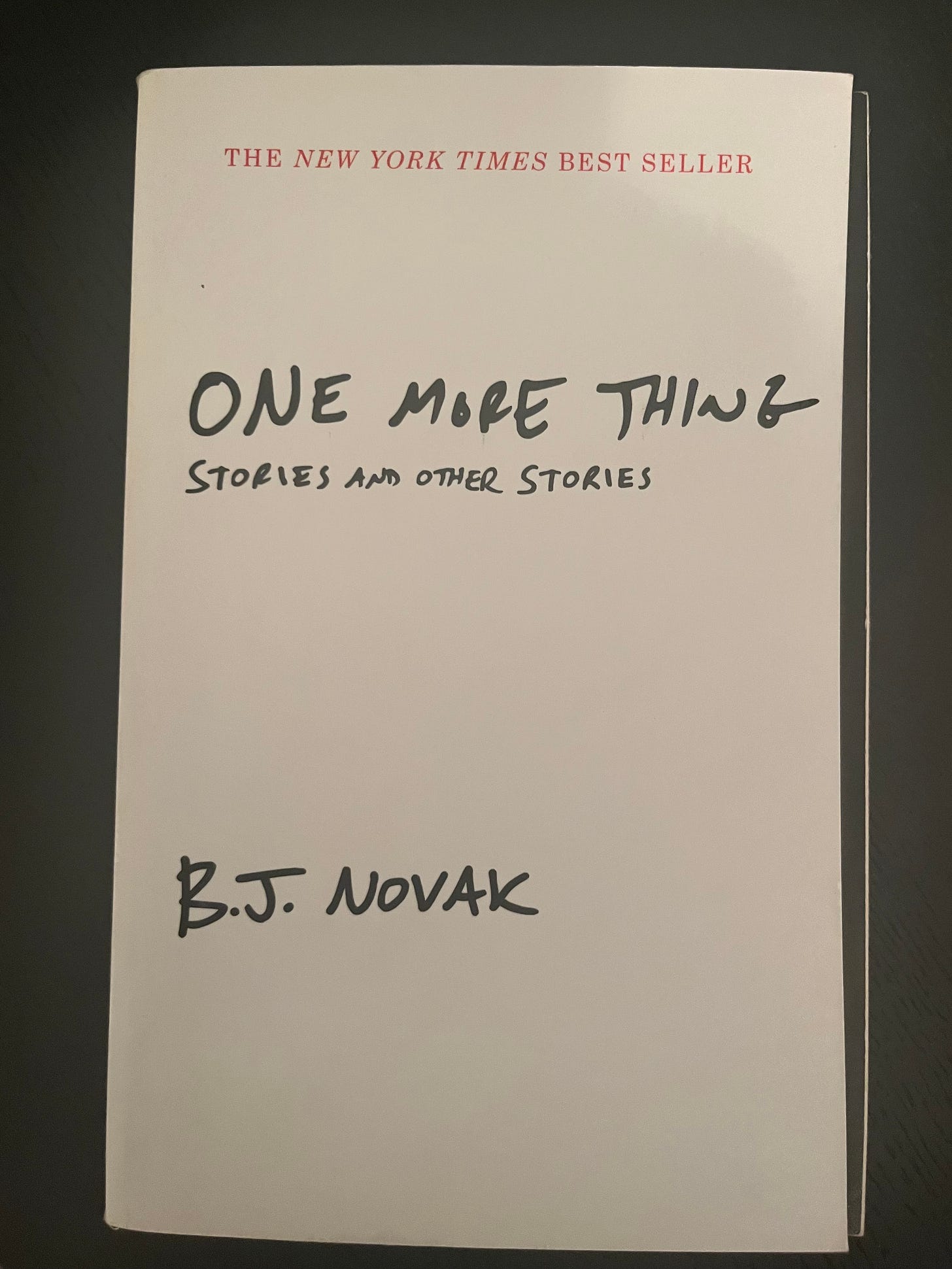
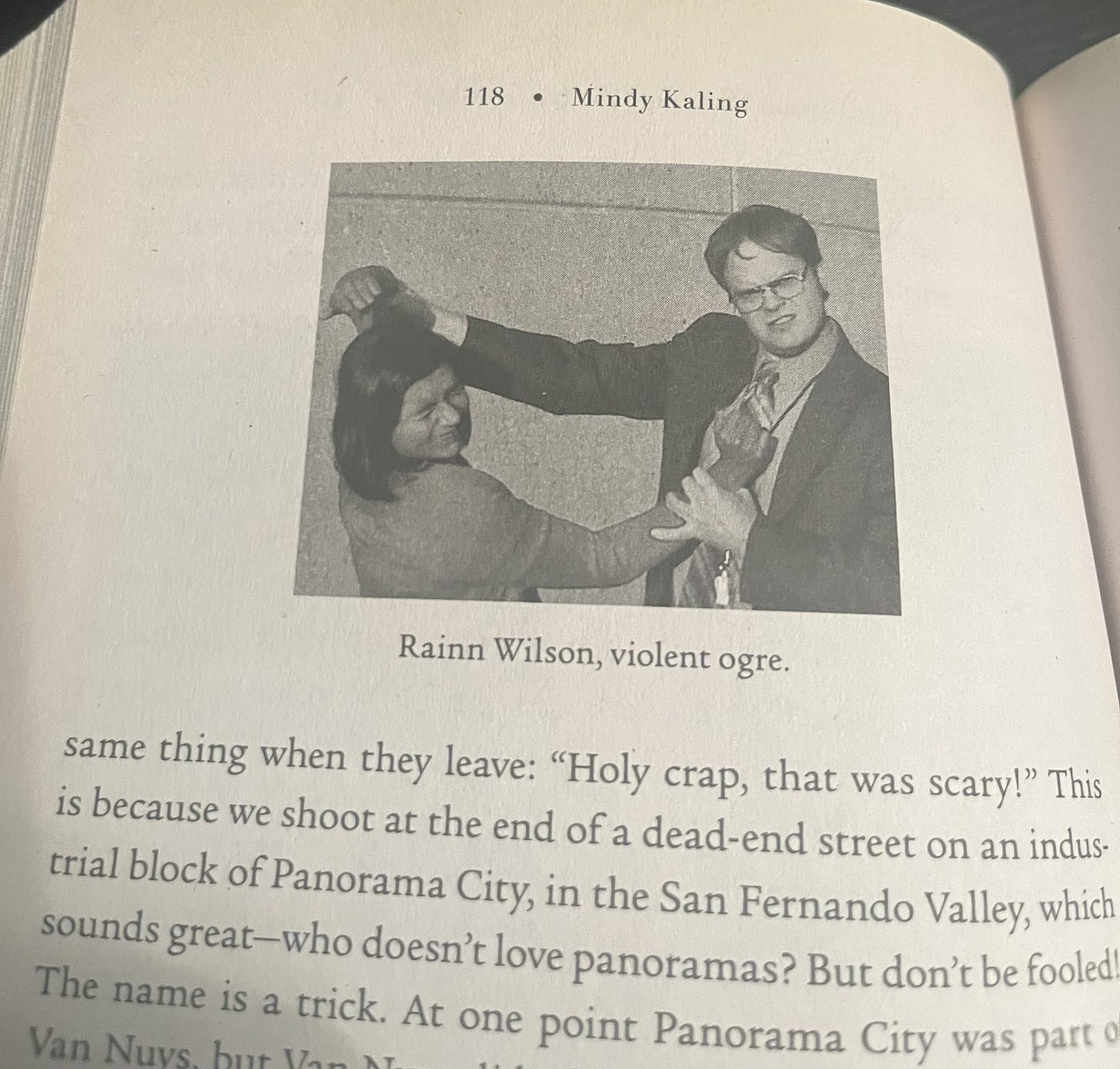
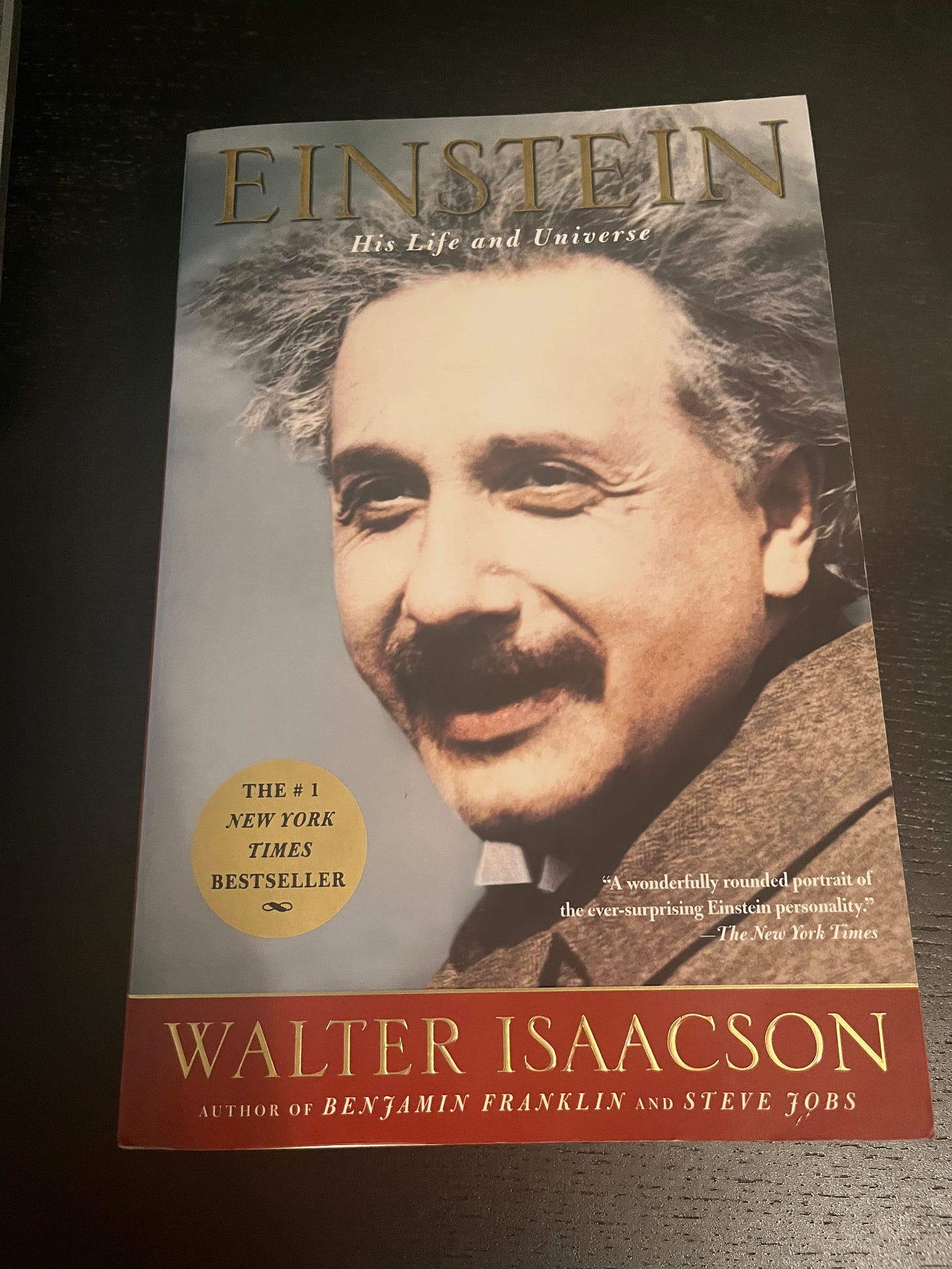

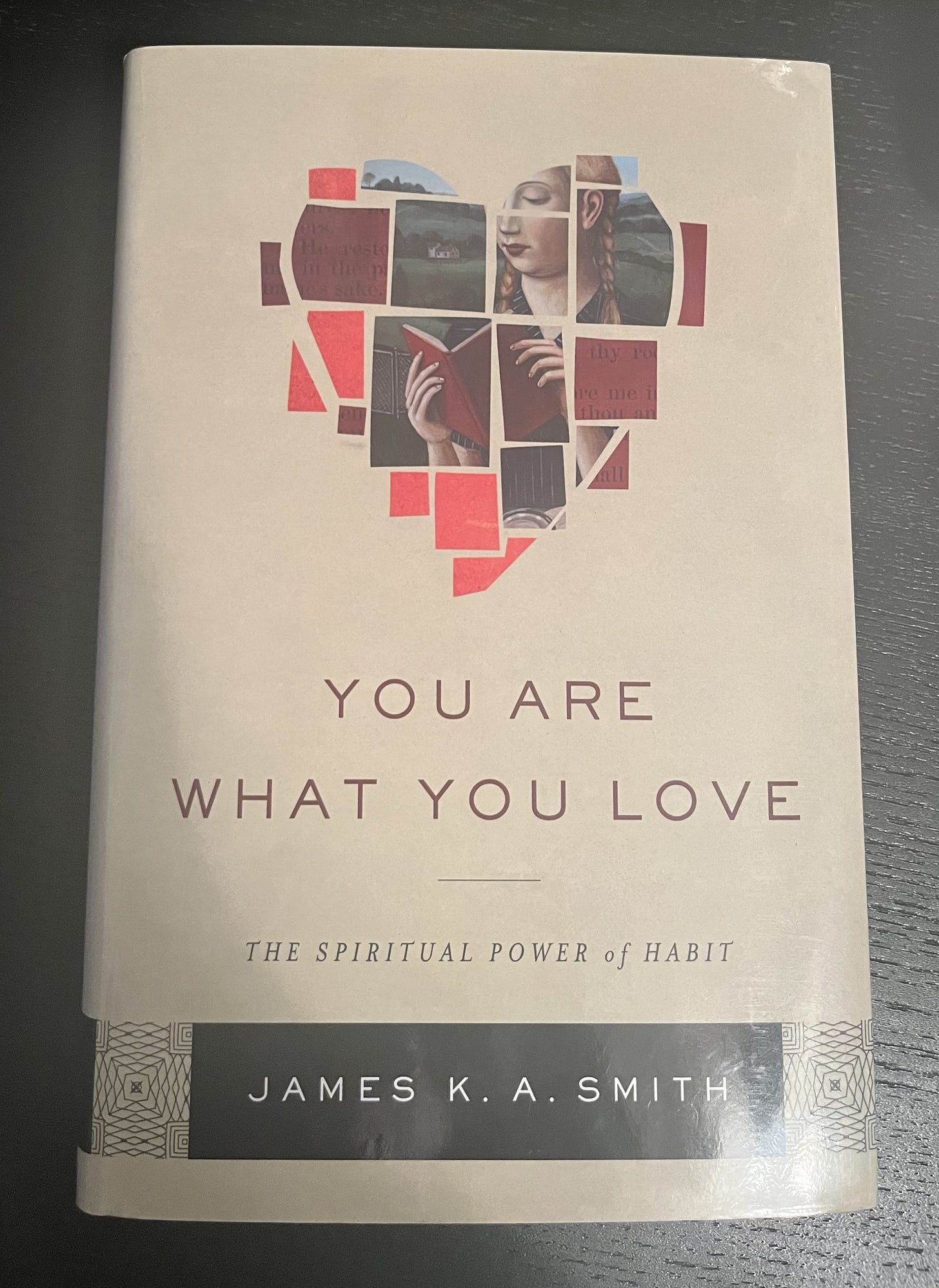
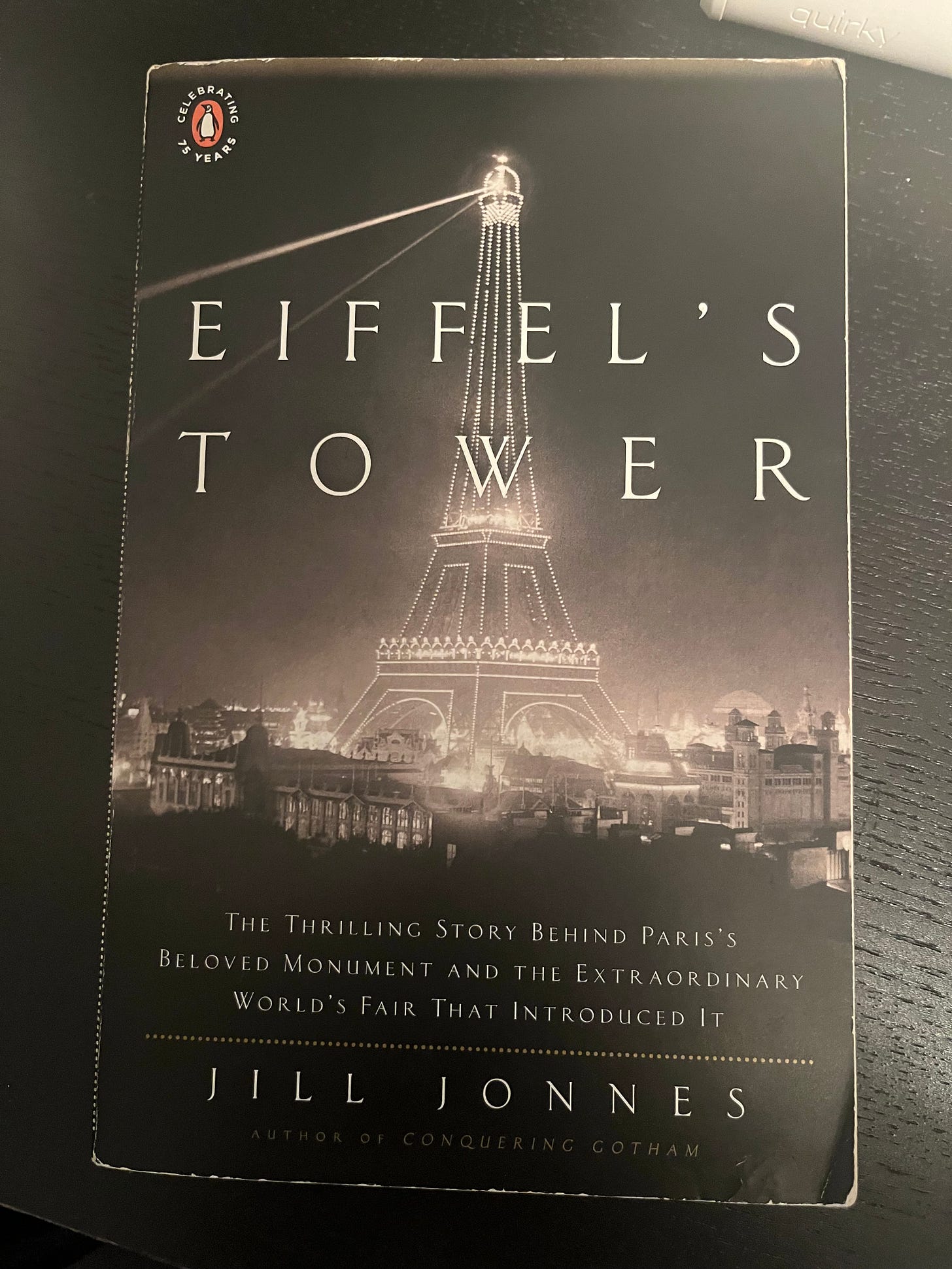
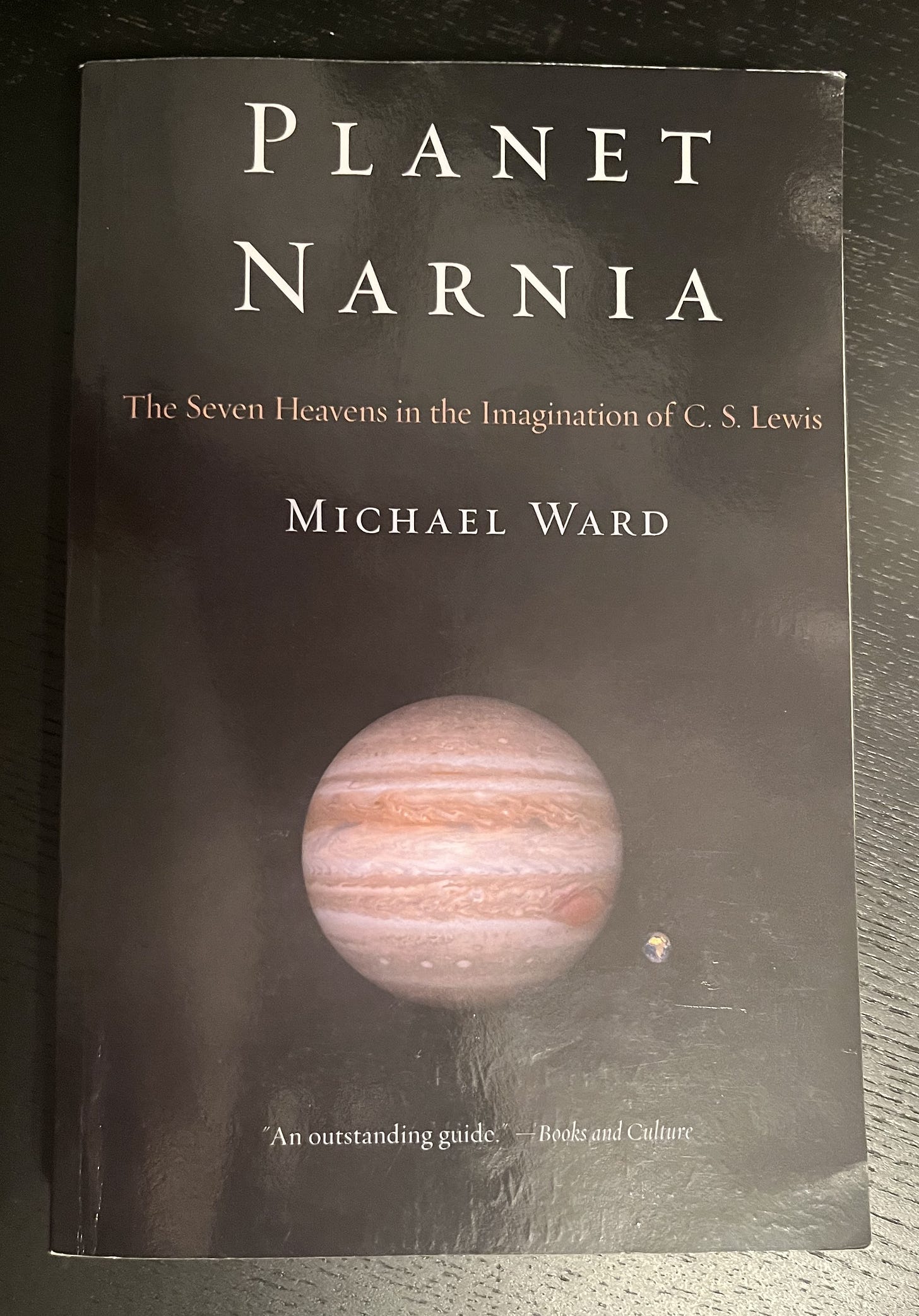

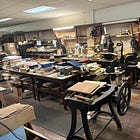
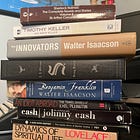

I'm honored that some of these were my books! (Even though I never read them) That To Kill a Mockingbird copy was given to me in 2000 by my mom before 8th grade, since she heard I was going to be reading it. 8th grade Paige was not ready for that book, but it blew away 26 year old Paige. So great, and so is Aaron Sorkin's version.
Love your map of Chris's worldview. Looking forward to studying that one more.